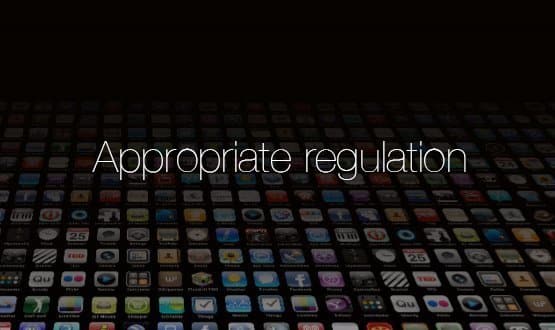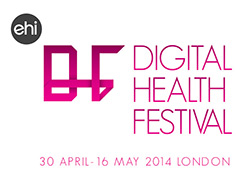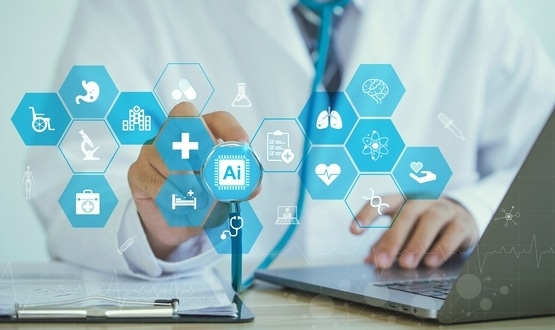Appropriate regulation
- 22 April 2014

According to a survey by Deloitte, seven in ten people in the UK now own a smartphone.
Those people are going to include a lot of NHS patients, who may well use their phones to look up symptoms and health advice, and a lot of doctors and nurses, who increasingly want to use their phones or tablets at work, to look up medical literature, drug dosages, or decision support tools.
As the world goes mobile, both groups will not just boot up the internet, but launch apps. However, the regulation of health apps, particularly in the medical context, is confusing and inconsistent.
When is an app not an app?
Nobody seems too worried about patient facing apps. The studies that have been done on them suggest that most pose little risk to safety (even if they have also shown that some of the highest rated apps in the iTunes app store score poorly for their clinical content).
Medical apps are another matter, and both the US and the EU have moved to regulate them over the past year or so. The Medicines and Healthcare products Regulatory Agency followed suit last month when it issued guidance on ‘medical device stand-alone software (including apps)’.
The guidance echoes the US Food and Drug Administration’s guidance, and says that any app meeting the definition of a medical device will have to abide by the MHRA’s regulations on medical devices.
But what is a medical device? And, by extension, what apps are covered? The MHRA says its guidance includes apps performing tasks such as “a simple calculation, a decision support algorithm, or a more complex series of calculations.”
“This includes software which provides personalised guidance based on information it has about a specific individual and makes use of data entered by them, provided by point of care devices or obtained via health records,” it adds.
“Apps acting as accessories to medical devices such as in the measurement of temperature, heart rate, blood pressure and blood sugars could be a medical device as are programmers for prosthetics.”
And does it need to be a medical device?
However, this leaves plenty of grey areas, in which the rules can be rather fluid. In addition to which, some safety experts, developers and medics feel that the whole business of trying to regulate apps like medical devices is too cumbersome.
Dr Maureen Baker, clinical director for patient safety at the Health and Social Care Information Centre, who is currently on secondment as chair of the Royal College of General Practitioners, told EHI Live last year that medical device regulation is ‘not fit for purpose’ for apps.
Dr Baker argued that it might be better to adapt the ‘safety case’ principles and standards that NHS Connecting for Health and then the HSCIC have worked up for the development and use of medical software for the apps space.
This has already been used to assess the apps accepted for NHS England’s Health Apps Library; most of which provide access to symptom, advice, and treatment location services, or enable patients to make simple records of, for example, their diet or mood.
NHS England is working to address the issues, but it’s going to take time. “An overall guidance document for ‘Health Apps for the UK’ is being drafted,” a spokesperson tells EHI.
“[This will include] both non-medical devices, covered by the clinical safety review process that underpins the Health Apps Library, and medical devices (that references to the MHRA guidance).
“Consequently, the Health Apps Library still continues to be the patient-facing resource for health apps that are non-medical devices. We continue to work closely with the MHRA on the end to end process and are sharing this with our US colleagues.”
Stores of value
Yet another approach to regulation is to create health apps repositories or stores, specifically for clinician facing apps, and leave the market or committed individuals to decide on what’s good and what’s not.
Ewan Davis, one of the founders of HANDI, says: “We will definitely see the development of healthcare specific stores; libraries of directories.”
In fact, he says, these have already started to develop. Last year, University College London Hospitals NHS Foundation Trust started to develop its own internal app store, where staff can find and download apps that are approved by the trust.
One of the clear benefits of this approach is that it overcomes the problem of stand-alone apps not taking note of local pathways, protocols, and policies. “There is a need to have a directory of some sort for all of the NHS, with some form of localisation based on local policies,” Davis argues.
Meanwhile, he argues that a Spotify-type model might work for junior doctors and students; educational apps, drug calculators and similar could be held in a trusted library, to which users could gain access paying a subscription fee.
Interestingly, the MHRA guidance suggests something similar. It says that NHS trusts and other healthcare organisations “should establish a medical devices management group to develop and implement policies across the organisation.”
It goes on to say the group should include clinicians, IT, infection control, maintenance and management members, as well as medical device users. It also argues that the group should consider not just apps but training.
More questions than answers
Having some UK-focused guidance on apps regulation is definitely a step forward; but it is certainly not the final word on the subject, which is why regulation will be addressed at the HANDI spring symposium that is being run as part of EHI’s Digital Health Festival.
“We will help answer the question around: is my app a medical device or not? And: how do you find safe and approved apps?” says Davis. Simple questions. Complex answers.

The HANDI Digital Health Symposium is taking place at the Royal College of General Practitioners in London on 14 May 2014.
Full details of the event and the other conferences, meetings and social media chats taking place as part of the Digital Health Festival are on its website.
Don’t forget about the EHI Pub Quiz which takes place in King’s Cross, London, on 14 May; we look forward to seeing you there!



